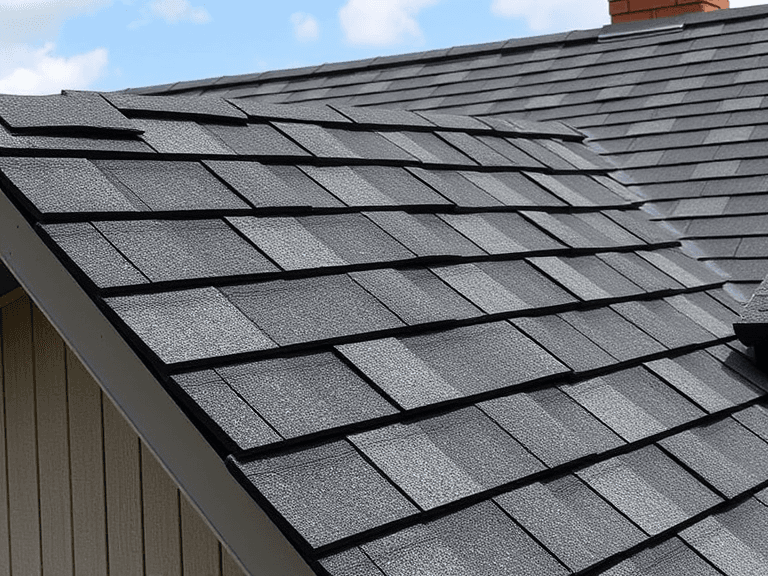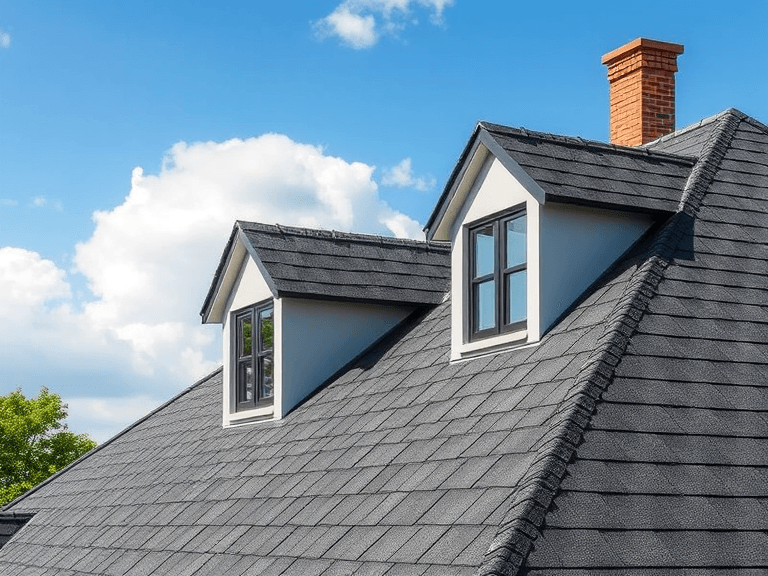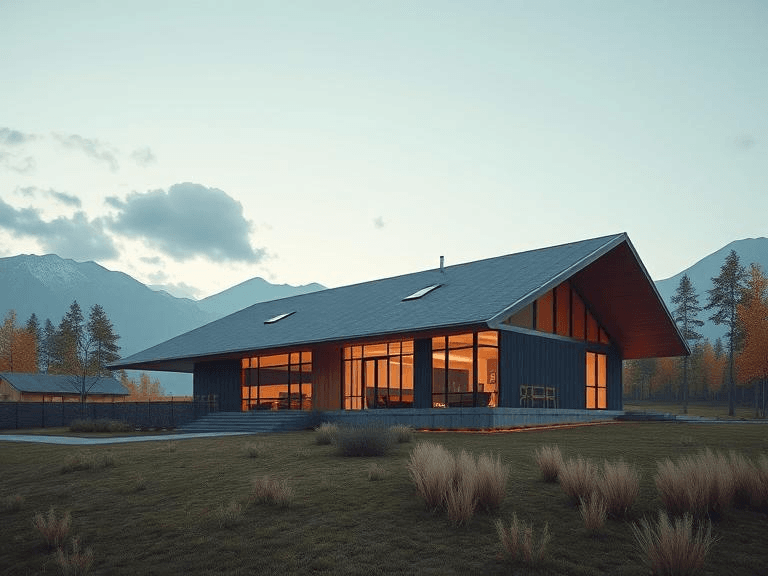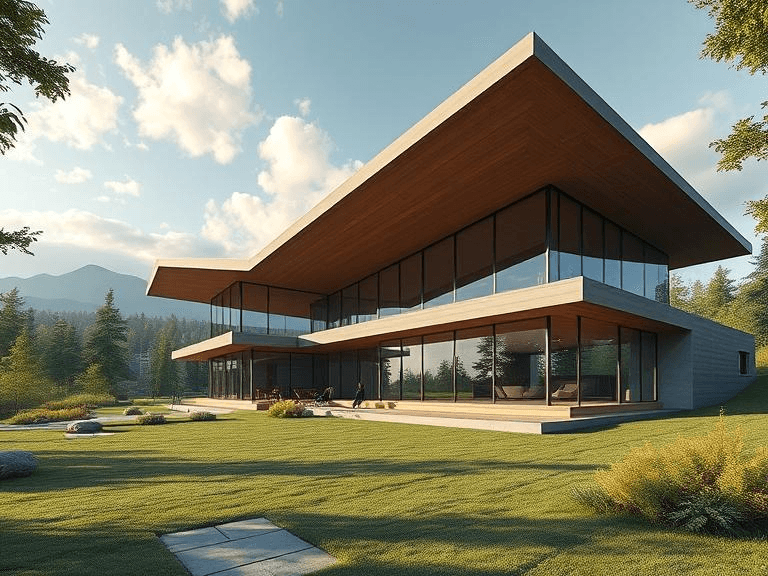
Asphalt shingles are among the most widely used roofing materials in North America, favored for their affordability, ease of installation, and versatility. Comprised primarily of a fiberglass or organic mat, asphalt shingles are coated with asphalt and granules, providing a durable and weather-resistant surface. This composition allows for effective protection against various weather conditions, making them a suitable choice for residential roofing solutions.
The application of asphalt shingles spans a variety of architectural styles. Homeowners can select from different designs, colors, and styles to complement their homes’ aesthetics. The most common types include three-tab shingles, architectural shingles, and premium shingles, each varying in cost, appearance, and longevity. Three-tab shingles are prized for their traditional flat appearance and budget-friendly pricing, while architectural shingles offer a dimensional look and enhanced durability, resulting in a longer lifespan.
One of the key reasons for the popularity of asphalt shingles is their affordability compared to other roofing materials such as metal, tile, or wood shakes. This cost-effectiveness makes them an attractive option for new homeowners or those looking to replace their roofs on a budget. Additionally, the installation process for asphalt shingles is relatively straightforward, allowing most roofing contractors to complete the job in a timely manner, further adding to their appeal. Overall, asphalt shingles provide a practical solution for homeowners seeking a balance between cost and effective protection for their residences.
Advantages of Asphalt Shingles
Asphalt shingles are a widely used roofing material, offering numerous benefits that make them a popular choice among homeowners. One of the primary advantages of asphalt shingles is their cost-effectiveness. Compared to other roofing materials, such as metal or slate, asphalt shingles are often more affordable, making them an attractive option for those on a budget. This economical choice does not compromise quality, as asphalt shingles are known for their durability and longevity, often lasting 20 to 30 years with proper care.
Another significant benefit of asphalt shingles is their variety in style and color. Available in an extensive range of designs, textures, and hues, homeowners can easily find shingles that complement their home’s architecture and personal aesthetic. This versatility allows for enhanced curb appeal, which can increase property value and provide a personalized touch to the residence.
The ease of installation is yet another reason many opt for asphalt shingles. They are lightweight, which simplifies the installation process, often resulting in lower labor costs. Most roofing contractors are experienced in working with asphalt shingles, further ensuring a smooth and efficient installation. Additionally, maintenance is relatively straightforward; minor repairs can be conducted easily, and regular inspections can help prolong the lifespan of the roof.
Moreover, as energy efficiency becomes increasingly important, asphalt shingles can provide benefits in this area as well. Certain types of asphalt shingles are designed with reflective properties that can help reduce heat absorption, potentially leading to lower energy bills during hot months. This reflects the growing awareness of sustainable practices in home maintenance, aligning with the needs of environmentally conscious homeowners.
Cost Considerations
Asphalt shingles are often regarded as a cost-effective roofing solution, making them a popular choice among homeowners. The initial material costs associated with asphalt shingles typically range between $90 to $100 per square, depending on the quality and style chosen. This affordability is a significant draw, especially when compared to alternative roofing materials such as metal or slate, which can significantly escalate the initial investment.
Installation expenses play a crucial role in the overall cost considerations of asphalt shingles. Professional installation can add another $150 to $300 per square, contingent on the complexity of the job and regional labor rates. Despite these additional expenses, the total cost of an asphalt shingles roofing project often remains substantially lower than complete installations using other materials, such as tiles or woods, which can incur higher fees due to material weight and installation intricacies.
One of the paramount advantages of asphalt shingles is their low maintenance costs. Typically, asphalt roofs can last anywhere from 15 to 30 years with proper upkeep, which primarily involves regular inspections and occasional repairs. This longevity and minimal maintenance contribute to their overall affordability, making them an attractive option for budget-conscious homeowners. However, it is essential to acknowledge that environmental factors, such as harsh weather conditions, might affect the lifespan of the shingles, potentially leading to earlier-than-expected replacements.
In essence, when comparing asphalt shingles to other roofing materials, their upfront costs and maintenance requirements position them favorably. By selecting asphalt shingles, homeowners can enjoy a roofing solution that combines affordability with durability, solidifying its status as a worthwhile investment for those looking to balance aesthetic appeal with practical financial considerations.
Durability and Weather Resistance
Asphalt shingles are widely recognized for their durability, making them a popular choice in various roofing applications. One of the key factors contributing to their robust performance is their ability to withstand different weather conditions. In hot climates, asphalt shingles are engineered to endure high temperatures without becoming brittle or cracking. This thermal stability is essential, especially in regions where prolonged exposure to intense sunlight is common, as it helps maintain the integrity of the roof over time.
Another significant aspect of asphalt shingles is their resistance to UV rays. Many asphalt shingles have special coatings that reflect sunlight, which not only increases their lifespan but also helps in reducing energy costs by keeping the underlying structure cooler. By mitigating the harmful effects of ultraviolet radiation, these shingles can prevent discoloration and degradation, allowing for a longer-lasting roofing solution.
When considering the performance of asphalt shingles in rainy conditions, they excel in water resistance, thanks to their unique design and materials. The overlapping installation method creates a barrier against rainwater infiltration, effectively directing water away from the roof. Additionally, the granulated surface aids in shedding water, reducing the risk of leaks. In terms of wind resistance, asphalt shingles are formulated to withstand gusts up to certain speeds, depending on the specific product. However, proper installation and adhesion play a vital role in ensuring that the shingles remain intact during severe weather events.
Furthermore, in snowy conditions, asphalt shingles can be advantageous as they promote efficient shedding of snow and ice, ultimately reducing the risk of ice dams that can lead to water damage. Overall, when evaluating the durability and weather resistance of asphalt shingles, they tend to present a balanced option that meets the needs of homeowners across various environmental conditions.

Aesthetic Appeal and Variety
Asphalt shingles are renowned for their aesthetic flexibility, making them an attractive option for many homeowners. The wide variety of styles, colors, and finishes available ensures that asphalt shingles can complement a diverse range of architectural designs. From traditional to contemporary, asphalt shingles can fit seamlessly into the overall look of any home.
One of the most appealing aspects of asphalt shingles is their ability to mimic other materials. Many manufacturers produce shingles that resemble wood, tile, or slate, allowing homeowners to achieve the desired appearance without the associated costs and maintenance. This versatility makes asphalt shingles a popular choice among those looking to improve their home’s curb appeal.
The color palette for asphalt shingles is extensive, with options ranging from earthy tones to vibrant hues. Homeowners can choose shades that harmonize with their home’s exterior, landscaping, or neighborhood aesthetic, creating a cohesive appearance. Additionally, manufacturers often offer multi-layered shingles that include variations in color to produce a more dynamic, textured look when viewed from different angles.
The design possibilities extend beyond mere color choices. Asphalt shingles also come in various shapes and sizes, including three-tab, architectural, and designer options. Each of these styles provides a unique visual impact, catering to personal preferences and architectural requirements. This broad selection allows homeowners to enhance their roofing while still benefiting from the durability and performance asphalt shingles offer.
In conclusion, asphalt shingles not only serve a functional purpose but also offer significant aesthetic advantages. Their variety in color, style, and finish empowers homeowners to customize their roofs, ultimately increasing the overall visual appeal of their properties. Thus, asphalt shingles present a compelling choice for those prioritizing design without sacrificing practicality.
Maintenance and Lifespan
Asphalt shingles are a popular choice for roofing material due to their relatively low cost and ease of installation. However, like any building component, they require regular maintenance to ensure their longevity. Regular inspections of the roof should be performed at least twice a year, preferably during spring and fall. During these inspections, homeowners should look for signs of wear and tear, such as curling, cracking, or missing shingles, which could indicate potential leaks or other issues. Additionally, it is crucial to keep the roof free of debris, such as leaves or branches, which can trap moisture and promote mold growth.
Cleaning is another essential aspect of maintaining asphalt shingles. Homeowners should remove moss, algae, or lichen that may grow on the surface, as they can deteriorate the shingles over time. While high-pressure cleaning may seem effective, it can damage the shingles, so using a gentle cleaning solution with low-pressure water is recommended. This cleaning routine, coupled with regular inspections, can help extend the lifespan of asphalt shingles significantly.
The typical lifespan of asphalt shingles ranges from 15 to 30 years, depending on various factors. One key factor is the quality of the shingles used; premium-grade asphalt shingles tend to last longer than standard varieties. Environmental elements also play a crucial role; homes situated in areas with extreme temperatures, high winds, or heavy snowfall may experience a reduced lifespan. Moreover, the installation process significantly impacts longevity, as improper installation can lead to early deterioration or failure of the roofing system. Factors such as roof pitch and ventilation also need to be appropriately addressed, ensuring a stable environment for the shingles.
In summary, the maintenance and lifespan of asphalt shingles are interrelated processes that influence the overall durability of a roof. Regular care can maximize the expected service life of asphalt shingles, allowing homeowners to maintain their investment effectively.
Environmental Considerations
When assessing the environmental impact of asphalt shingles, several factors come into play, including recyclability, energy consumption during manufacturing, and potential eco-friendly alternatives. Asphalt shingles are one of the most commonly used roofing materials in North America, primarily due to their affordability and durability. However, understanding their environmental footprint is essential for making informed choices.
One significant consideration is the energy used in the production of asphalt shingles. The manufacturing process typically requires substantial amounts of fossil fuels, contributing to greenhouse gas emissions. Reports indicate that around 80% of the raw materials used in asphalt shingles are derived from non-renewable sources. Therefore, while asphalt shingles offer short-term durability and economic advantages, their long-term impact on the environment is concerning.
Recyclability is another important aspect of asphalt shingles. Asphalt shingles can be recycled after their useful life, with up to 95% of their materials being reclaimable. This recycling can help divert waste from landfills, where shingles frequently end up. Many municipalities are beginning to implement recycling programs specifically for asphalt shingles, repurposing them into products like asphalt pavement or road construction materials. However, the availability of such programs varies by region, which can impact the overall sustainability of using asphalt shingles.
In terms of eco-friendly alternatives, some homeowners are increasingly considering options such as metal roofing, wood shakes, or clay tiles. Each of these materials tends to have a reduced carbon footprint compared to asphalt. Moreover, various manufacturers are beginning to develop sustainable asphalt products that incorporate recycled content and lower-emission production techniques. Making informed choices will ultimately depend on balancing personal preferences and environmental responsibility.
Disadvantages of Asphalt Shingles
Asphalt shingles are a popular choice for residential roofing due to their affordability and ease of installation. However, there are notable disadvantages to consider when opting for this roofing material. One significant concern is their susceptibility to damage from high winds. Asphalt shingles can lift or tear off during severe weather conditions, particularly in areas prone to hurricanes or tornadoes. This vulnerability can lead to costly repairs and increased insurance premiums, which homeowners must consider when selecting roofing materials.
Another drawback is the maintenance requirements associated with asphalt shingles. While they may initially appear low-maintenance, factors like algae growth, curling, and cracking can necessitate more frequent upkeep than other roofing options. Homeowners in humid environments may find themselves dealing with algae stains, requiring the application of special cleaning solutions or preventive treatments to maintain the roof’s appearance and functionality. Additionally, asphalt shingles may have a shorter lifespan than materials such as metal or slate, which means homeowners might need to replace their roofs sooner, adding to long-term costs.
Extreme climates present another challenge for asphalt shingles. In regions where temperatures frequently fluctuate, shingles can expand and contract, leading to premature wear and potential leaks. Similarly, in areas with heavy snow or ice, the risk of ice dams forming can compromise the integrity of the roofing system, resulting in water infiltration and structural damage. Homeowners living in such climates may need to consider alternative roofing options that can better withstand the rigors of their localized weather conditions.
Conclusion: Is Asphalt Shingles Right for You?
Asphalt shingles are a popular choice for roofing among homeowners due to their cost-effectiveness, variety, and ease of installation. Throughout this discussion, we have examined both the advantages and disadvantages of asphalt shingles, allowing potential buyers to make informed decisions regarding their roofing needs. One of the primary benefits of asphalt shingles is their affordability compared to other roofing materials, which enables homeowners to achieve a protective roofing system without significant financial strain.
Moreover, asphalt shingles come in a vast array of colors and styles, providing an opportunity for customization to match various architectural designs. Their lightweight nature makes them easier to install and handle, reducing labor costs and installation time. Additionally, when properly maintained, they can last a substantial number of years, contributing to their appeal.
On the other hand, it is important to recognize the drawbacks associated with asphalt shingles. They can be susceptible to weather damage, especially in areas prone to extreme temperatures or strong winds. Furthermore, while they are energy-efficient to some degree, they do not offer the same insulation benefits as some other roofing alternatives, potentially leading to higher energy costs for homeowners in the long run.
When determining whether asphalt shingles are the right choice, consider your specific climate, aesthetic preferences, and budget constraints. Assessing these factors can provide clarity on whether the advantages outweigh the disadvantages for your unique situation. By carefully weighing the key points discussed, homeowners can confidently decide if asphalt shingles align with their roofing objectives and requirements.


